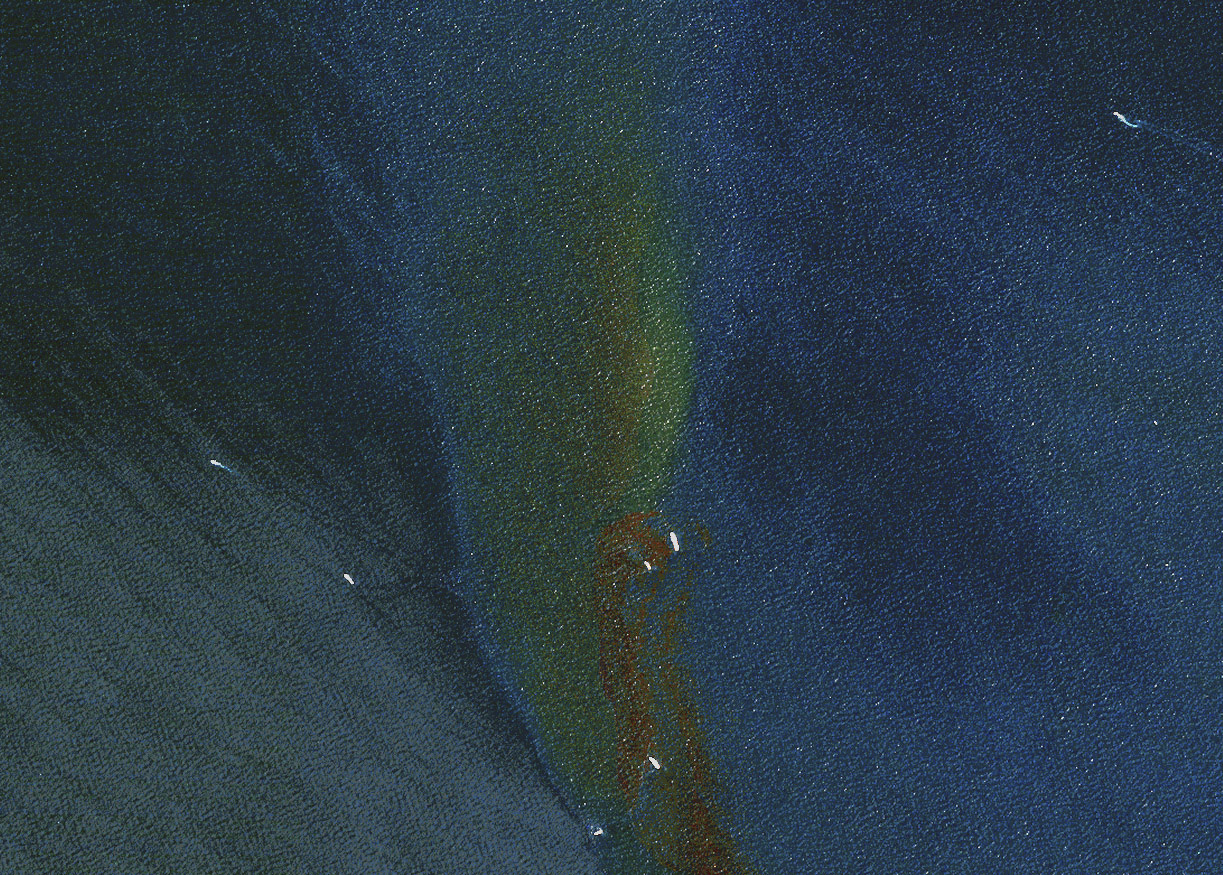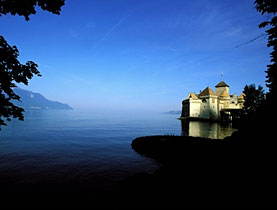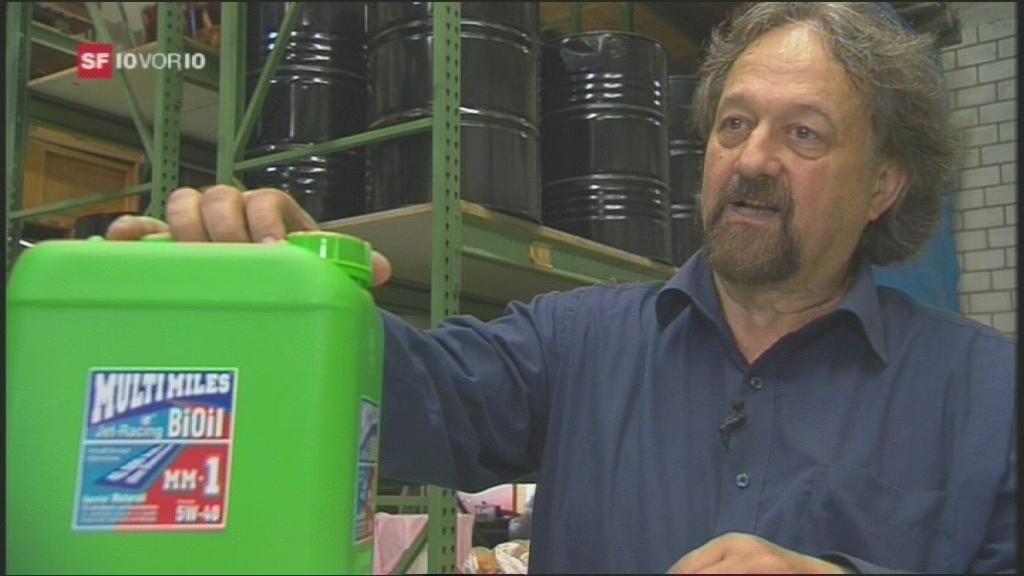BP to face severe consequences, says Swiss expert

The massive oil spill from an offshore well in the Gulf of Mexico is quickly turning into an environmental nightmare, and could impact the future of deepwater oil exploration.
A Swiss-Dutch geologist tells swissinfo.ch the disaster could severely affect multinationals like BP. On Friday, the oil industry got a taste of the way things could go when Washington put a hold on any new offshore oil projects.
Stefan M. Luthi is professor of production geology and head of the department of Geotechnology at the Delft University of Technology in the Netherlands. He worked for Schlumberger Oilfield Services for many years.
swissinfo.ch: How could such an accident happen?
S.M.L.: We really don’t know. Something happened on the way between the oil reservoir and the platform. The so-called blow out preventer – a set of valves that connects the pipe from underground to the surface – is supposed to control any excessive pressure that might go further up the line.
The blowout preventer did not do what it was supposed to do. That is the major environmental risk. The second guessing is that probably a burst of either high-pressure oil, or [oil] mixed with gas came up to the surface very unexpectedly, and it blew out and caught fire. Once these highly volatile mixtures reach the surface, there’s a lot of electrical gear around, so all you need is one spark and the whole thing blows up.
swissinfo.ch: Offshore oil exploration keeps going to deeper depths. What are the inherent dangers?
S.M.L.: High pressure, as we’ve now seen. But this is actually nothing. This particular well is drilled in 1,500m of water and it went down to about 5,000m and that’s a relatively mild depth. People go down to 9,000m these days, and in much more remote areas of the Gulf of Mexico.
swissinfo.ch: How great do you think the long-term environmental impact could be?
S.M.L.: It’s extremely difficult to judge. We’ve received conflicting details about how much oil is spilling out. The initial statement from BP was 1,000 barrels a day [but it] has revised the leakage upwards to 5,000 barrels a day, and apparently they were producing 7,000 a day when it happened, so they were probably testing. Meaning that they were drilling into a reservoir to see how much they could actually produce prior to actually producing it continuously. So that’s a much more realistic estimate we have now. That’s a considerable amount of oil.
swissinfo.ch: The oil leaking out is light oil. How would you compare this with other large spills over the past few decades?
S.M.L.: The Exxon Valdez was heavy crude oil which lumps together and is very sticky. Light oil spreads out faster, but on the other hand evaporates more easily, and you can easily burn it. They tried to burn it.
swissinfo.ch: Isn’t that controversial?
S.M.L.: You contain it in booms, and ignite it. I don’t know if it’s all that controversial, but I don’t know if it’s the right method to be used there because it’s patchwork. You should be trying to stop the leak as soon as possible. All the remedial work going on at the surface – which seems to be on a much too small of a scale, it’s much too haphazard. Apparently they don’t have the big equipment that we have in the North Sea.
swissinfo.ch: Why is that? There’s a lot of drilling going on in the Gulf of Mexico, why weren’t they ready with proper damage control equipment?
S.M.L.: It’s not clear whose responsibility it is; is it the states, the coast guard, the army corps of engineers? It’s the same problem as with Hurricane Katrina. Who was responsible for all of the levees? It turned out in some cases it was one authority, and other cases another. And there was very poor coordination between the authorities, so that might be part of it.
swissinfo.ch: Has safety in offshore drilling improved over the past few decades?
S.M.L.: Tremendously. What’s being done now in deepwater drilling, some people would say landing on the moon was a piece of cake by comparison. Given that, relatively little happens as far as accidents are concerned. Which is why it’s too bad this has happened because the safety record has been very good over the past 10-15 years.
swissinfo.ch: How great is the potential for offshore oil?
S.M.L.: It’s no longer potential, it’s a fact. The recent discovery in Brazil [proves that]. They drill through several kilometres of salt, which is extremely difficult to do, and found very significant oil reservoirs below that at very great depths. They’re probably going to do that in West Africa now, because it’s the mirror image of Brazil.
swissinfo.ch: To what extent do you think the accident will lead to greater limits being put on this kind of drilling?
S.M.L.: We don’t know. The coastline of Louisiana is extremely complicated with all the bayous and estuaries. To protect that against an oil spill is practically impossible because there are so many ways in, and the coastline is so long, that it would need a massive intervention. And there are very sensitive ecosystems. So the spill could have an impact on regulation. But the regulation on offshore and deepwater drilling is already very strict.
It’s partly self-regulated. None of these companies take this lightly. They know what’s at stake. BP will be punished in many different ways, very seriously, in regards to where they get concessions, where they are allowed to drill, and how they are checked on safety by national agencies. And its public image will be greatly damaged.
International oil companies have one problem, they don’t have access to oil. They have access to about 15 per cent of the known oil and 85 per cent is with national oil companies. So international oil companies are forced to go to extremes – very deep water. So the pressure is on them. That’s their niche where they can excel if they are going to stay competitive.
Dale Bechtel, swissinfo.ch
According to Stefan M. Luthi, the offshore platform was being used to drill into deepwater sands, so-called turbidite reservoirs. These are a type of geological deposit that is likely to be oil bearing. These are sands that have been deposited by underwater currents, also known as avalanches, that have gone down the continental slope into deeper waters and deposited on the flat sea floor.
The Deepwater Horizon oil rig where the accident occurred could operate in waters up to 2,400 m deep, and had a maximum drill depth of 9,100 m. The rig could accommodate up to 130 crew members. The semisubmersible rig was floated to the drilling location; it had pontoons and four partially submerged columns. The rig was not supported by the sea floor but its pontoons sat under the water.
The rig belonged to the Transocean offshore oil drilling company.
Transocean is the world’s largest offshore drilling contractor.
Although it was established in the US, its headquarters have been in the Swiss town of Zug since 2008.
According to its website it has 138 mobile offshore drilling rigs and 20,000 employees world wide.
Its website describes its safety vision as: conducting its operations “in an incident-free workplace, all the time, everywhere”.
Its clients are global energy firms, national petroleum companies and independent contractors.
It constructs wells for both oil and gas all round the world: the Gulf of Mexico and eastern Canada, Brazil, the British and Norwegian sectors of the North Sea, West Africa, Asia, including Australia and India, the Middle East, including Saudi Arabia, and the Mediterranean.
Shares in Transocean fell by 12 % on the Zurich stock exchange on Friday as a result of the oil spill.
Some experts say BP could ask Transocean, the owner of the rig, to help pay for the clean-up operations.
However, BP, as operator of the rig, has accepted responsibility and says it will compensate those who have suffered from the accident.
US President Obama has also said BP is ultimately responsible for the crisis.


In compliance with the JTI standards
More: SWI swissinfo.ch certified by the Journalism Trust Initiative




You can find an overview of ongoing debates with our journalists here. Please join us!
If you want to start a conversation about a topic raised in this article or want to report factual errors, email us at english@swissinfo.ch.